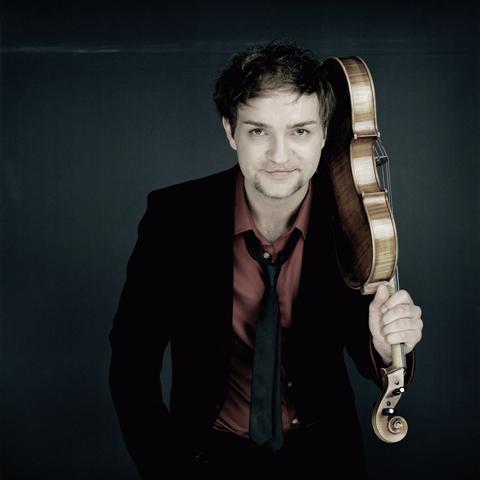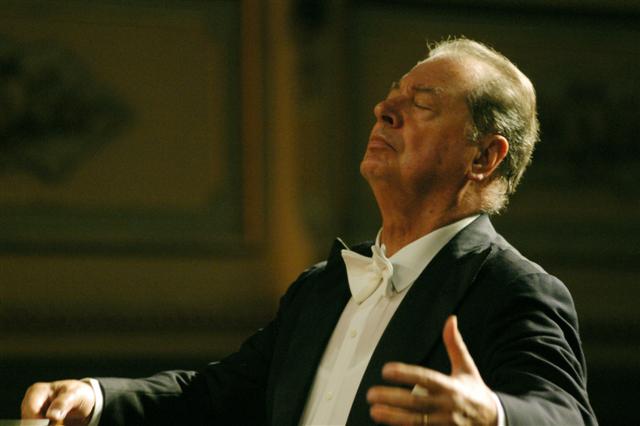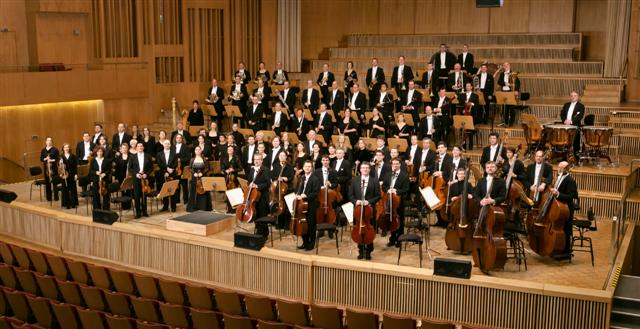Radio-Sinfonieorchester Berlin with Frühbeck de Burgos
By Henning Høholt on 3/06/12 • Categorized as Classical music
Rundfunk-Sinfonieorchester Berlin, Conductor Rafael Frühbeck de Burgos, soloist: Nils Mönkemeyer, Viola
Reviev by Bruno Tredicine
Music by: Isaac Albeniz, Béla Bartók and Nikolai Rimski-Korsakov in Berlin, Philharmonie, Grosse Saal, 19/2/2012.
Rundfunksinfonieorchester Berlin is one of the oldest radio orchestras in the world, the oldest in Europe having been funded in far 1923, she’s still in full activity and is protagonist of an interesting seasons, like the present one with this concert that took place in the – always suggestive – Berlin Philharmonie.
On pult in Berlin was Rafael Frühbeck de Burgos, who was chief and artistic director of this orchestra from 1994 to 2000. In those time, he made the most for letting his home country’s music grow popular, so it’s not a surprise that the opening notes in this concert came from a Spanish composer, Isaac Albeniz and his Suite Española, even if only four of its eight parts. It’s good to remember that this Suite is composed by eight parts, each one entitled to a Spanish city, but three out of eight were included in the suite by the editor, after Albeniz’s death.
Anyway, this is a work, de Burgos is very tied to because he wrote the orchestration starting from the original score for piano
. So, it’s not surprising that he has led the orchestra with secure hand and it was easy for him to be followed by the ensemble with an extroversial performance, that pleased the audience without being merely folkloristic.
It’s a strange coincidence that exactly as it was for Albeniz’s suite, also the second composition of the program was published after the death of his author: Bela Bartók’s Concerto for Viola and orchestra.
In this case, the story is somewhat more complex: Bartók has dedicated his energy to compose this work in the last weeks of his life. When he died, what was left was a manuscript where only the first movement had more or less the shape of a score, for the rest it handled of loose pages, annotations and vague indications about how the orchestral sound had to be. His pupil, Tibor Serly, was the one who worked on was left of the score and recreate the concerto, making so that it was possible to perform it, what happened for the first time in 1949, four years after the composer’s death.

Soloist in this Berlin concert was the young german violist Nils Mönkemeyer, who showed his skill even more on the introspective side than in being a virtuoso. De Burgos seemed at the contrary more interested in building the right accompagniment than to ‘penetrate’ deep inside the complex score, so it’s all up to Mönkemeyer if the performance was
fascinating in his severe complexity, not easy for the listener, who was taken to a trip inside the depths of grief, maybe mirroring the composer’s difficult time in his American exile. The whole first movement was a long sober confession, and only in the second movement we were given some spot of melodic pleasure, before enetering in the finale, more spectacular and communicative, with the use of folcloristc themes.
With the famous Sheherazade by Nikolai Rimsky-Korsakov all the problems came to evidence. This is considered sometimes as a spectacular ‘easy’ composition, but how much this sentence is wrong was easy to see (unfortunately) in this occasion. Here it was evident that this score is very difficult to be taken under control and how it is important that it’s conducted giving it an imprinting of character and personality. What is, sorry to say, missed in this Berlin concert, where the orchestra was not even precise and too often uncertain, and where, above all, harmony and cohesion among the different orchestra section were missing, losing in this way the unitary vision. There was no trace of expressivity, and of the magnificent palette of colours, that should exaltate the magic athmosphere, what was left was almost nothing except white and grey.
Anyway the audience tributed to conductor and orchestra a very warm success.
Rundfunk-Sinfonieorchester Berlin
Conductor Rafael Frühbeck de Burgos
Viola Nils Mönkemeyer
Programme:
Isaac Albeniz From Suite Española:
Sevilla (Sevillanas) Granata (Serenata) Castilla (Seguidillas)
Béla Bartók Concerto for viola e orchestra (version Tibor Serly)
Nikolai Rimski-Korsakov Sheherazade – Symphonic suite op.35
Berlin, Philharmonie, Grosse Saal, 19/2/2012.


